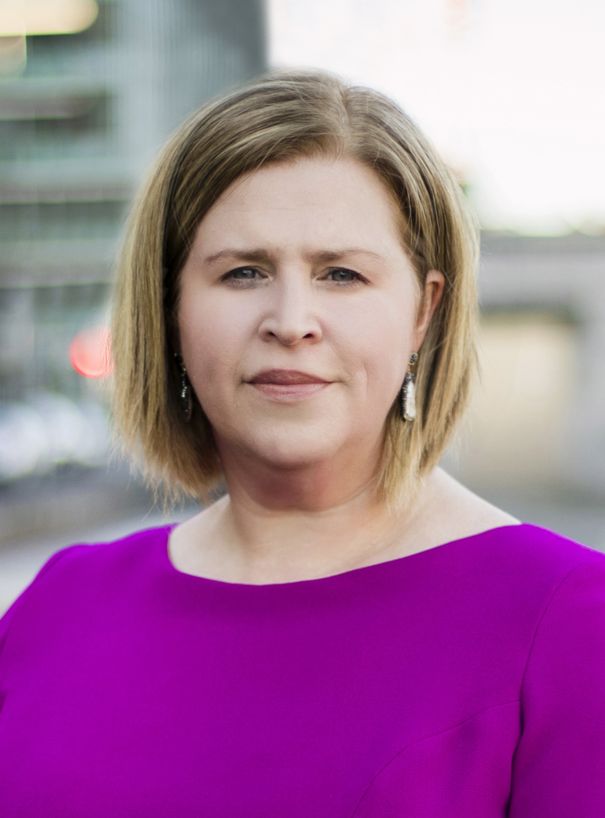The Irish Hotels Federation (IHF) has welcomed the Taoiseach’s announcement today that indoor dining for non-residents will be reopening as well as international travel for non-essential reasons resuming from 19th July along with the easing of restrictions on guest numbers for weddings. Commenting on the Government’s plan to reopen society and the economy, IHF President Elaina Fitzgerald Kane said: “Today hotels and guesthouses across the country have been given much-needed clarity that will help their business planning for the peak tourism season. This is another important step in the right direction for the tourism and hospitality industry. However, we still have a long road ahead of us,” she said.
Ms Fitzgerald Kane said “The Government has sent a very clear signal that Ireland is reopening for tourism when it is safe to travel similar to other European countries. The domestic market was very important last year and will be again this year. However, it does not replace international visitor
numbers. As an island nation international tourism is critically important, accounting for over 70% of tourism revenue pre-COVID. While hotels and guesthouses are not relying on significant overseas visitors this year, the easing of restrictions on international travel for business and leisure will be very important in extending the season for many Irish tourism businesses, while also supporting the recovery in our major cities including Dublin, where occupancy levels lag the rest of the country.”
Welcoming the news that guest numbers for weddings will increase to 100 in August, Ms Fitzgerald Kane said it was a boost for couples, many of whom had postponed their wedding on more than one occasion over the past year. Live music and the restoration of licensing hours are also important to wedding couples going forward and we would welcome clarity on these. She called for a roadmap for the further easing of restrictions particularly in relation to smaller gatherings including family celebrations and non-essential business events. “At present, outside of weddings, there is no provision for family events or occasions that could involve groups of more than six adults. We would also like to see numbers for larger gatherings linked to the size of the venue. We’d also welcome clarity on progress markers linked to the continued vaccination roll-out that would give a greater sense as to when further easing of restrictions can be expected.
The IHF President also called for a firm commitment from government on business and employment supports. “Tourism will recover but it will take time and needs additional supports. Our industry has been disproportionately impacted by the pandemic and with some level of restrictions likely for some time to come, tourism recovery is not going to begin in earnest until 2022. The supports to date have been very welcome and akin to life support but it is essential that the Government provides greater clarity and certainty now around supports¹ into 2022 and beyond so that businesses can plan.” said Ms Fitzgerald Kane.
“The hotel sector has a vital role to play in ensuring Irish tourism and hospitality returns to a more stable footing in the months ahead – helping to sustain thousands of businesses and almost 270,000 livelihoods throughout the country. These jobs represent 11% of total employment nationally and, with 70% located outside of Dublin, make a vital contribution to communities in every county and town throughout the country. In some communities, tourism is the only show in town. The industry’s recovery must be to the fore of Government economic policy as we seek to restore employment levels and tourism communities as quickly as possible,” she said.
- ENDS -
Media Queries:
Weber Shandwick: Ger McCarthy
Mob: 086 2333590
Notes to Editor:
* The IHF is calling on the Government to commit to the following tourism supports:
1. EWSS to remain in place until the end of March 2022
2. Local Authority Rates waiver to remain in place until the end of March 2022 similar to what has been put in place in Scotland
3. Reopening grants to be doubled to reflect the scale of reopening costs after months of prolonged closure
4. Covid Restrictions Supports Scheme (CRSS), targeting businesses with 75% drop in revenue, to be doubled irrespective of the level of Covid restrictions and the €5,000 weekly cap to be removed
5. Tourism VAT rate of 9% is a critical measure for international competitiveness and must be in place until 2025
6. The Government must ensure that the banks have appropriate supports and engagement processes in place for hotels and their team members until Covid – 19 has been suppressed.
